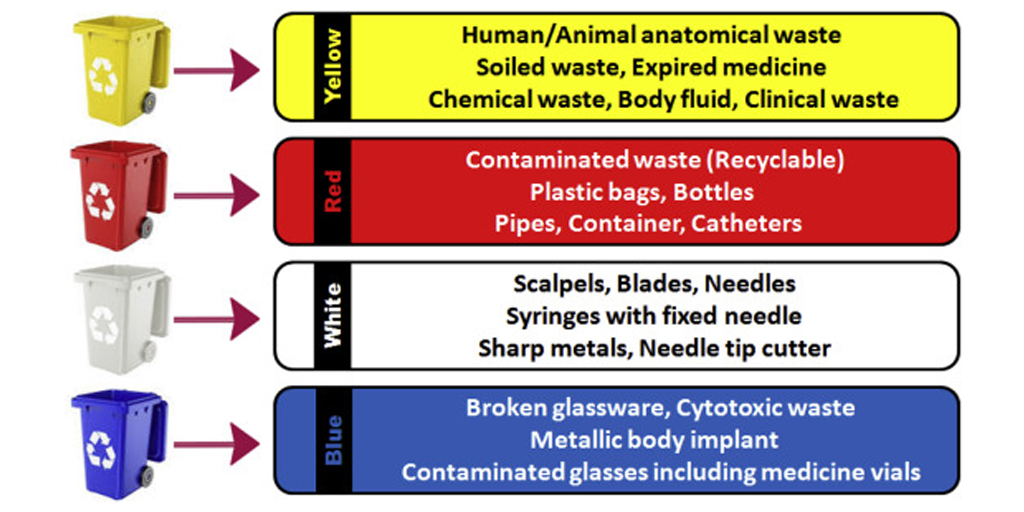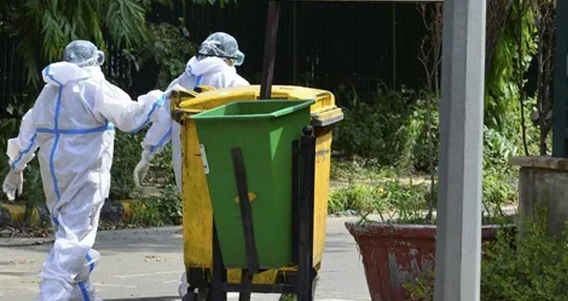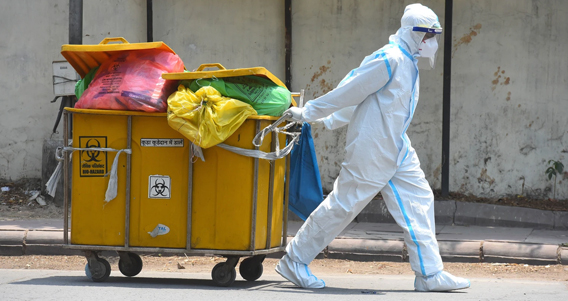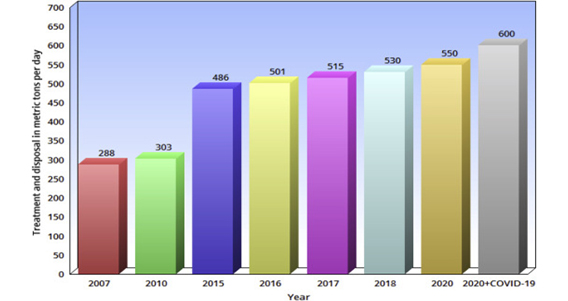Biomedical Waste
- Home
- Biomedical Waste
Biomedical and COVID Waste – Collection, Recycling and Disposal Services
GGPL has always chosen a path of improvement over convention. Our uniquely designed and engineered medical waste collection, recycling and disposal services and systems have benchmarked safer healthcare standards globally, and our definition of quality and value has always been judged against the yardstick of the lives we can save.
Our medical waste management services are time-tested to deliver unprecedented results in total cost reduction by aligning your needs, processes, training, and products. We guarantee that we can deliver a far better solution than you currently have.
Importance of Biomedical and Covid Waste Management
According to Biomedical Waste (Management & Handling) Rules, 2016 of India “A waste that is generated during the medical treatment of living beings or in research purposes or in the production or testing biological” is biomedical waste.
WHO expresses that 85% of hospital wastes are really non-hazardous, though 10% are infectious and 5% are non-infectious yet they are remembered for hazardous wastes. About 15% to 35% of hospital waste is directed as infectious waste. India roughly produces 2 kg/bed/day, and this biomedical waste envelops wastes like an anatomical waste, cytotoxic waste, sharps, which when insufficiently isolated could cause various types of fatal irresistible ailments and furthermore cause interruptions in the earth, and antagonistic effect on biological parity.
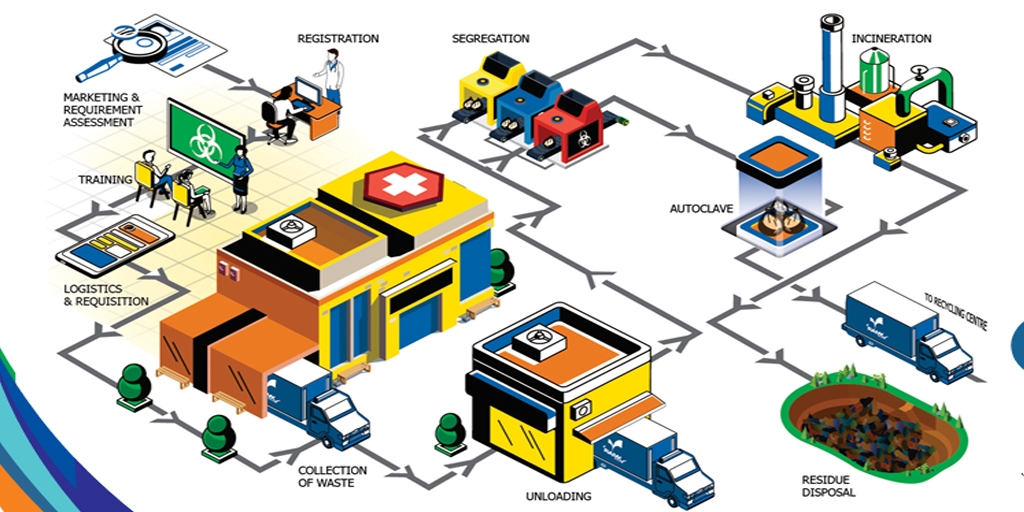
Colour Coding System of Biomedical Waste & Covid Waste
Biomedical Waste Management and Handling Rules 2016 specify a proper colour coding system for achieving segregation at source for avoiding infection and exposure. Colour coding basically exists to allow you to easily distinguish the different types of biomedical waste, by sorting them into different categories, each pertaining to a single colour. So, if you want your company to have an efficient waste management system, these really are the basics.
Color coding isn’t there just for your comfort: it also represents the very basic principle that waste doesn’t all go to the same place. Different kinds of waste also mean different of ways of handling them.
